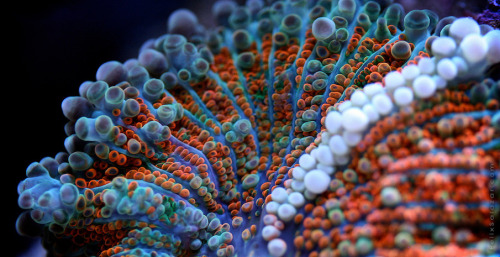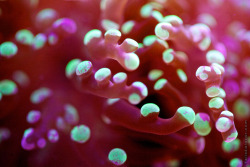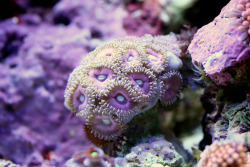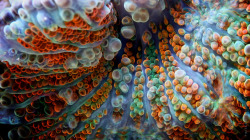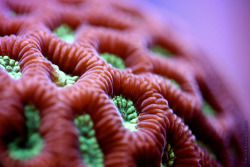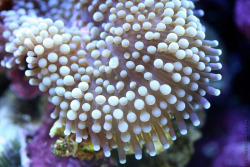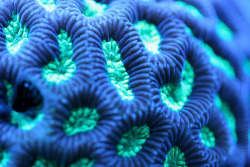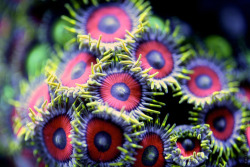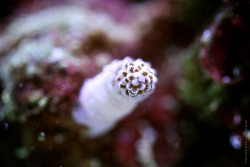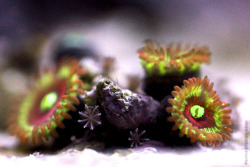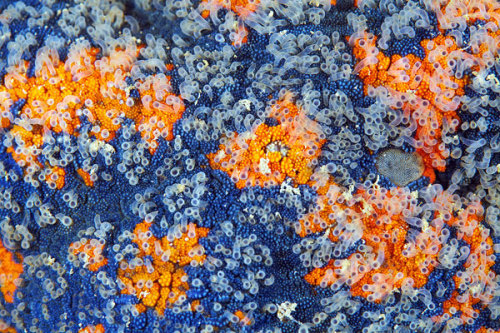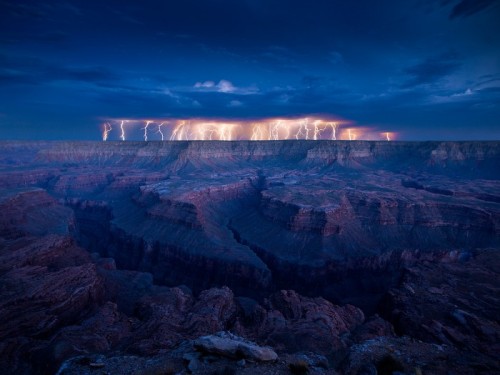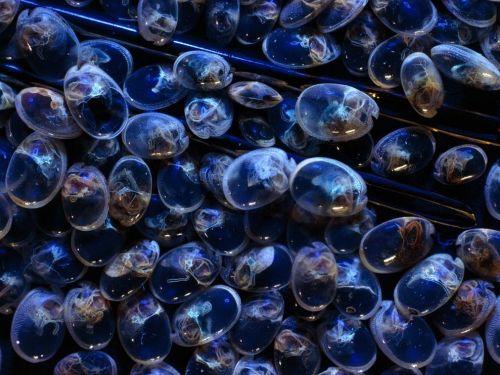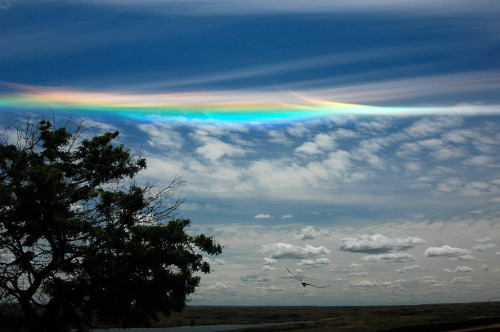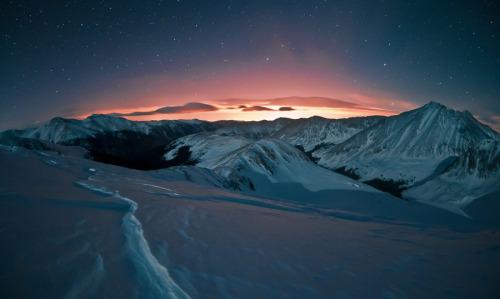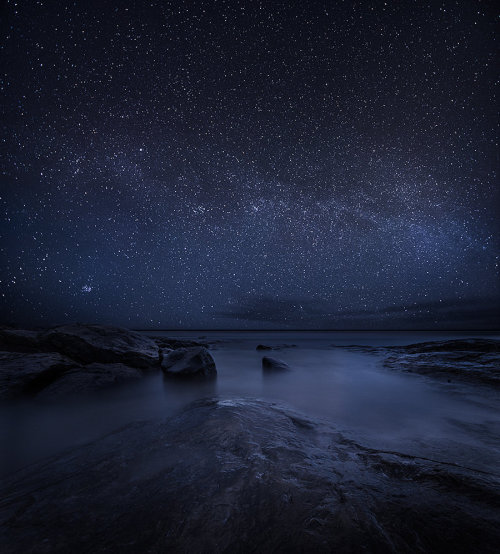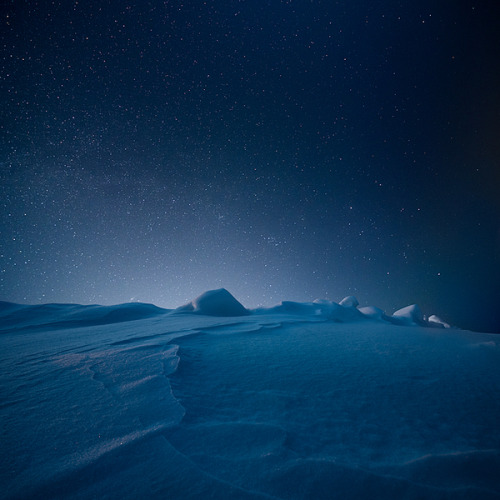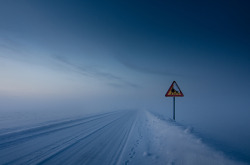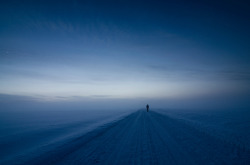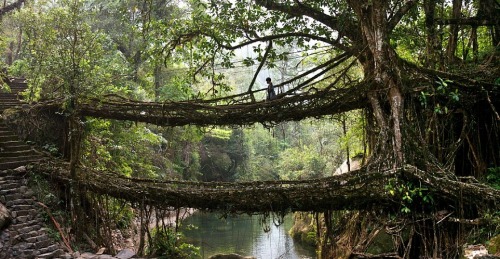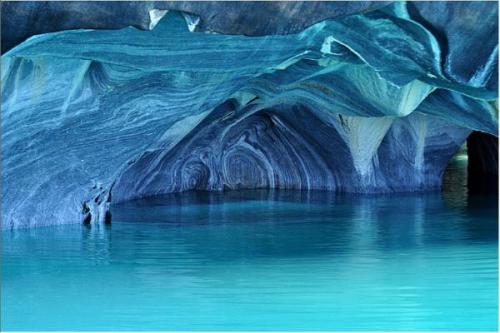Showing posts with label nature. Show all posts
Showing posts with label nature. Show all posts
Wednesday, March 13, 2013
Friday, March 1, 2013
Thursday, February 14, 2013
Monday, January 28, 2013
Friday, December 21, 2012
Lecture: The Chemistry of Snowflakes
The shape of a snowflake is due to the changing condition of the air through which it falls. Who knew?
Tuesday, December 18, 2012
Photo: Nature’s Night Light
Sometimes known as the sea-firefly, Vargula hilgendorfii is a
species of ostracod crustacean that only inhabits coastal waters off
Japan. It is a nocturnal creature that rarely grows longer than 3
millimetres, with a beautiful transparent shell—but it’s best known for
its bioluminescence. When disturbed, it secretes a luminous blue
substance through a process similar to many other bioluminescent
creatures: a chemical reaction of the substrate luciferin and the enzyme
luciferase. The maximum wavelength of its light depends on the pH and
the salinity of the water, and varies between 448 and 463
nanometres—meaning that the light is coloured various shades of blue. In
World War II, the Japanese collected these creatures and crushed them
in sand and water to produce their blue luminescence, which ingeniously
served as light for soldiers to read maps and messages at night.
Friday, December 7, 2012
Video Distraction: Fall Time-Lapse
Fall from Jamie Scott
"One of the most striking things about New York City is the fall colors and there's no better place to view this then Central Park. I chose 15 locations in the park and revisited them 2 days a week for six months, recording all camera positions and lens information to create consistency in the images. All shots were taken just after sunrise."
Wednesday, December 5, 2012
Video Distraction: Spider Web Weaving
A spider making his web. 1h30 shooting, one picture every four seconds. Shot with Nikon D4 and timelapse function...
Friday, November 23, 2012
Photo: Rare Fire Rainbows
Rare Fire Rainbows:
It looks like a rainbow on fire but these circumhorizontal arcs aren’t
rainbows. They are caused by light passing through high-altitude cirrus
clouds. The sun has to hit the clouds at precisely 58 degrees and have
just enough crystals in order to form in the sky.
Friday, April 20, 2012
Photo: Urban Landscape
Thursday, April 19, 2012
Tuesday, April 17, 2012
Thursday, April 5, 2012
Saturday, March 31, 2012
Friday, March 30, 2012
Photo: Lava Crater
Another amazing capture from ESA astronaut André Kuipers, from his vantage point on the International Space Station. André travelled to the orbital outpost in December 2011, and will remain in orbit for more than 6 months as part of ESA’s long duration mission, PromISSe.
Wednesday, March 28, 2012
Video Distraction: Perpetual Ocean
This visualization shows ocean surface currents around the world during the period from June 2005 through Decmeber 2007. The visualization does not include a narration or annotations; the goal was to use ocean flow data to create a simple, visceral experience.
This visualization was produced using NASA/JPL's computational model called Estimating the Circulation and Climate of the Ocean, Phase II or ECCO2.. ECCO2 is high resolution model of the global ocean and sea-ice. ECCO2 attempts to model the oceans and sea ice to increasingly accurate resolutions that begin to resolve ocean eddies and other narrow-current systems which transport heat and carbon in the oceans.The ECCO2 model simulates ocean flows at all depths, but only surface flows are used in this visualization. The dark patterns under the ocean represent the undersea bathymetry. Topographic land exaggeration is 20x and bathymetric exaggeration is 40x.
Tuesday, March 27, 2012
Net: Google Tour of the Amazon
Last August, Google sent a team to Brazil to create Street View maps of some of the waterways, forests, and villages of the Amazon Basin.
Monday, January 9, 2012
Video Distraction: Hornets vs Bees
Giant Japanese hornets slaughter European honeybee hive.
Source: National Geographic.
Thursday, September 15, 2011
Exploration: Living Bridges
Photo: Daily Mail
Deep in the rainforests of the Indian state of Meghalaya, bridges are not built, they’re grown. For more than 500 years locals have guided roots and vines from the native Ficus Elastica (rubber tree) across rivers, using hollowed out trees to create root guidance systems. When the roots and vines reach the opposite bank they are allowed to take root. Some of the bridges are over 100 feet long and can support the weight of 50 people. Check out Architizer for even more pictures.
Thursday, July 7, 2011
Daily Links: July 7, 2011
10 Amazing Geek Bars and Restaurants, beginning with Miracle of Science, in Cambridge
The Connected States of America is a supercool interactive map from the MIT Media Lab and IBM that lets you visualize how regions in the US are connected by cell phone calls and SMS messages. Instead of the familiar states, new patterns emerge, with New Jersey and California split in half, and Pittsburgh the new capital of West Virginia, among other changes.
Drunk Puppy Buying Banned by West Village Pet Stores
Magician Derren Brown admits his chess game is shit. Nonetheless, he plays nine world-class chess masters, simultaneously, and wins more matches than he loses. But how?
Tibetan singing bowls give up their chaotic secrets.
Will young men ever grow up? 'They're often called lost boys, the many young men' in Canada, 'who keep postponing adulthood.' 'Social scientists are trying to figure out why their numbers keep growing.' 'In the past, marriage and family were markers of adulthood, writes Michael Kimmel in his book Guyland, but in a world where young women put off children for careers, where job security is a thing of the past and their parents' values hold little allure, young men can postpone adulthood almost indefinitely.'
Subscribe to:
Posts (Atom)
